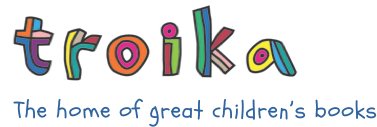Poetry and the GCSE curriculum: Troika poets respond
Last week the government announced that GCSE students in England will be able to drop subject areas in English literature exams next year. Poetry is one of the topics that will become optional following concerns that schools may not be able to cover all areas because of the coronavirus pandemic.
“Making poetry optional in GCSE English literature is out of tune with the times. Poetry needs to be central, not an option,” wrote poet- writer and teacher Kate Clanchy in The Guardian, while BBC News ran a story listing seven reasons not to give up on poetry.
Meanwhile, we asked our band of passionate, talented poets here at Troika for their thoughts. Here are some of them.
Poetry is the playground of the mind. Where words go to grow meaning. Where meaning goes to create judgement. Where judgement goes to discover humanity. How can education willingly turn its back on such an essential human need? Especially now, when we need all the meaning, judgement and humanity we can possibly muster.
Zaro Weil
Poetry's use of inventive language and imagery is very different to 'chapter books'. It helps many children who find swathes of story text daunting to access literature, and it comes in numerous different styles including performance which is often akin to rap - a form that engages most secondary students.
Neal Zetter
I think it’s a great shame that poetry is undervalued by politicians and, inexplicably, by some educators. Human nature, being what it is, leads us to happily shelve what the influencers around us treat as optional. Covert messages received in childhood often take root, and are hard to weed out later in life. Of course hard decisions have had to be made, but a shorter, adjusted look at poetry would have been as easy to achieve.
Coral Rumble
Teachers have so many ‘i’s to dot as it is, so if poetry is optional my fear is it may end up not being an option at all. And for some children this may be the only exposure to poetry they get. That said, I would like to see it taught differently. Taught to have a go and taught to experience, rather than for exams. Poetry is subjective, not something that lends itself to a ‘correct’ answer. Fostering a love of poetry needs to precede tests. Almost everything I know academically about poetry I learnt after loving it, because I wanted to become better at it.
Sue Hardy-Dawson
On the one hand this strikes me as a backward and short-sighted move at a time when poetry is very much on the rise, after years in the margins. Then again, the fact of a subject being compulsory does little to encourage it being taught in a way that inspires. When I was at school the very notion of anything being compulsory was almost guaranteed to make me lose interest in it (yes, I was one of those teenagers!).
Shauna Darling Robertson
As someone who would question the entire premise of exams, I'm going to simply hope that teachers continue to use poetry in a way that encourages a love of language and the connections it creates between us.
Dom Conlon
As the editorial in Saturday’s Guardian newspaper said, ‘Rather than streamlining reading lists, it might be time to change the way students are examined. Read Marvell because he is marvellous not as a means to passing an exam. … Poetry is about response, not regurgitation…’.
Trevor Millum
Branding poetry as an 'option' in the GCSE curriculum implies that it's either of inferior status or so esoteric an interest that only a few would choose to pursue it. This, in my opinion, is a crass misunderstanding of the value of poetry and how it underpins - and informs - the whole of literature.
Hilda Offen
And a final word from Roy Johnson, Troika’s Commercial Director:
Sadly I feel that making poetry merely an option will mean that a lot of overworked teachers may not encourage it very much at all, even as a pleasure. It seems modern kids don't have much time in school for pleasures anymore. I have concerns about the academic aspect of how poetry is taught (and in particular tested), but I do think that some children need a positive nudge into poetry, and who better to offer that nudge than a teacher or librarian (as well as families and peers of course).
Looking to keep the poetry faith alive and kicking? Browse the Troika poetry collection!

